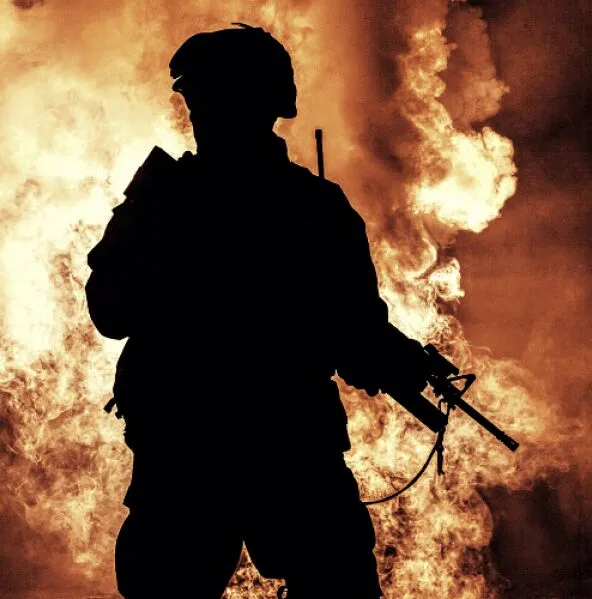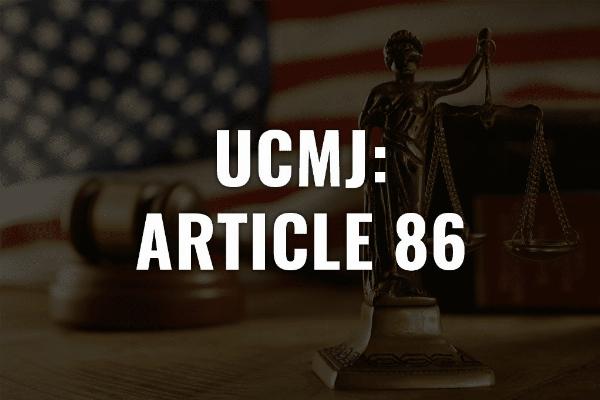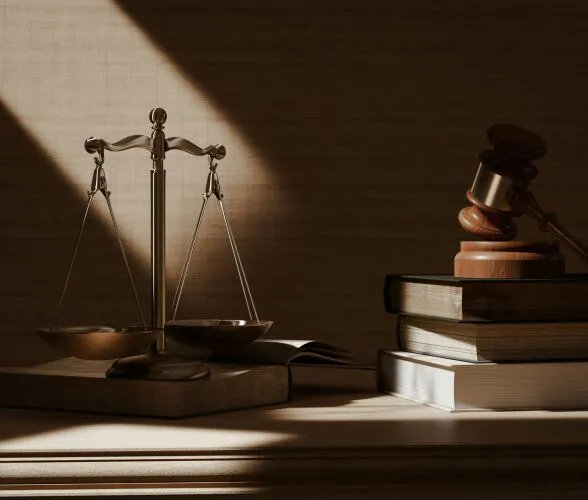 Infographics for Backlinks – Visual Goldmines for Authority Sites!
Infographics for Backlinks – Visual Goldmines for Authority Sites!
UCMJ Mutiny: The Serious Consequences of Mutiny and Sedition in the Military
Written by Bilecki » Updated on: June 17th, 2025

Mutiny is one of the most severe offenses under military law, governed by Article 94 of the Uniform Code of Military Justice (UCMJ). While it may seem like an outdated concept, the reality is that mutiny and sedition remain relevant in the modern military and are treated with the utmost seriousness. These offenses not only threaten the chain of command but also jeopardize the overall security and stability of military operations.
Mutiny and sedition involve acts that challenge military authority or incite others to disobey lawful orders. Under the UCMJ, any service member who engages in, attempts to incite, or even fails to suppress mutiny can face severe legal consequences, including life imprisonment or the death penalty in times of war. Understanding the implications of UCMJ mutiny charges is essential for every service member.
What Constitutes Mutiny Under UCMJ?
Mutiny, as defined by Article 94, involves two primary actions. First, it occurs when a group of service members collectively refuse to obey lawful orders from their commanding officer. This disobedience can take the form of openly defying orders or deliberately neglecting duties essential to military operations. Second, mutiny occurs when service members use violence or threats of violence to overthrow or usurp authority within the military structure.
Sedition, another serious offense under Article 94, is closely related to mutiny. It involves actions aimed at inciting resistance or rebellion against lawful military authority. While sedition may not involve a direct act of defiance, it can include spreading discontent or encouraging others to disobey lawful orders, essentially undermining the military’s leadership and mission readiness.
Both ucmj mutiny and sedition are viewed as direct threats to the integrity of the armed forces. Given the hierarchical and disciplined nature of military life, any disruption to the chain of command can have catastrophic consequences, not just for the unit involved but for the entire operation.
The Legal Consequences of UCMJ Mutiny
Mutiny and sedition are capital offenses under the UCMJ, meaning they can result in the death penalty during wartime. Even in peacetime, the punishment for mutiny is extremely severe, often leading to life imprisonment, dishonorable discharge, and forfeiture of all pay and allowances. The military takes these offenses so seriously because they have the potential to cripple entire units, affect the success of missions, and undermine national security.
One of the unique aspects of UCMJ mutiny charges is that a service member does not have to be the primary instigator to face consequences. Simply participating in a mutiny, even passively, can lead to the same penalties. In fact, service members who witness or are aware of mutiny or sedition and fail to take action to prevent it may also face charges.
The consequences of a conviction under Article 94 extend beyond the immediate punishment. A dishonorable discharge will permanently impact a service member’s reputation, future employment opportunities, and eligibility for veterans’ benefits. Given the gravity of these potential outcomes, defending against UCMJ mutiny charges requires thorough legal expertise and a deep understanding of military law.
The Role of Command Structure in Preventing Mutiny
The military relies on a clear and disciplined command structure to maintain order and ensure the success of its operations. When that structure is threatened, whether through disobedience or an attempt to overthrow leadership, the consequences can be disastrous. This is why the military is so swift and uncompromising in its response to any act that could be interpreted as mutiny or sedition.
Military leaders are trained to detect early signs of discontent that could lead to mutinous behavior. By fostering open communication, addressing grievances, and maintaining discipline, commanders can often prevent situations from escalating into full-blown mutiny. However, if those preventive measures fail, it becomes the responsibility of both leaders and service members to take swift and decisive action to suppress any mutinous activities.
Service members are also taught from day one that obedience to lawful orders is the cornerstone of military service. Refusing to follow those orders or attempting to incite others to do the same goes against the very principles of military life. While disagreements and frustrations may arise, mutiny is never the answer, as it puts everyone at risk and compromises mission success.
Defending Against UCMJ Mutiny Charges
Because mutiny and sedition are such serious offenses, the legal defense against these charges can be complex. A service member accused of mutiny may argue that the orders in question were unlawful or that they were acting under duress. In cases of sedition, the defense might focus on the service member's intentions, arguing that their actions did not rise to the level of inciting rebellion or overthrowing authority.
In either case, securing experienced legal counsel is essential. Military attorneys, such as those at the Bilecki Law Group, are well-versed in the intricacies of UCMJ and can build a strong defense tailored to the unique circumstances of each case. Given the severe penalties at stake, it’s critical for service members facing UCMJ mutiny charges to seek legal representation as early as possible.
Conclusion
UCMJ mutiny and sedition offenses are among the gravest violations of military law, with penalties that can include life imprisonment or even death. These acts not only disrupt the chain of command but also pose a significant threat to the safety and effectiveness of military operations. The military's strict enforcement of Article 94 reflects the seriousness of mutiny and its potential to destabilize entire units.
For service members, avoiding any actions that could be perceived as mutinous is critical to their careers and their unit’s mission. However, if faced with charges under UCMJ mutiny, it’s essential to secure knowledgeable legal defense to navigate the complexities of military law and protect one’s future.
Note: IndiBlogHub features both user-submitted and editorial content. We do not verify third-party contributions. Read our Disclaimer and Privacy Policyfor details.
Copyright © 2019-2025 IndiBlogHub.com. All rights reserved. Hosted on DigitalOcean for fast, reliable performance.
















